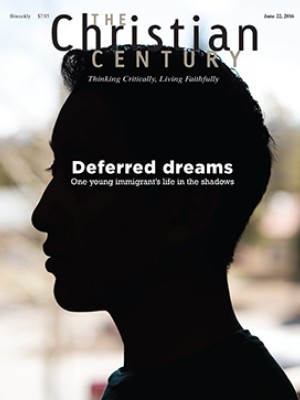United Methodists punt on LGBT inclusion, reject divestment
In an effort to stave off a schism, the United Methodist Church deferred a decision on whether to allow same-sex marriage and accept LGBT clergy.
At the church’s General Conference, a gathering every four years to chart the course of the global denomination, held May 10–20 in Portland, Oregon, delegates rejected divestment from Israel and fossil fuels and celebrated the Imagine No Malaria campaign. The church also decided to withdraw from the Religious Coalition for Reproductive Choice, a pro-abortion rights group, and the U.S. Campaign to End the Israeli Occupation, which critics see as anti-Israel.
In the church’s largest-ever global health initiative, United Methodists have raised $68 million of their $75 million goal for malaria prevention, treatment, and education in sub-Saharan Africa since 2008.
On sexuality, Bruce Ough, president of the Council of Bishops, said the church is considering convening a special session of its General Conference in 2018 or 2019 to discuss LGBT issues. The church, with some 12 million members worldwide, including more than 7 million in the United States, is experiencing its greatest growth in places where many members are theologically conservative on LGBT issues, particularly in African nations.
Read our latest issue or browse back issues.
“We recommend the General Conference defer all votes regarding human sexuality and refer this entire subject to a special commission named by the Council of Bishops,” he said.
The global body of delegates voted 428-405 to allow the bishops to create such a commission that would undergo “a complete examination and possible revision of every paragraph in our Book of Discipline regarding human sexuality.”
Pressure to make the United Methodist Church a more LGBT-friendly church has increased in the United States since the Supreme Court’s decision to legalize same-sex marriage. Just before the conference started, 111 United Methodist clergy came out as LGBT, an action that could expose them to discipline.
“We keep wrestling with this just like the American public keeps wrestling with it,” said Adam Hamilton, a United Methodist pastor and author. “The United Methodist Church in so many ways represents that broad spectrum of American people.”
On another contentious issue, the Israel-Palestine conflict, a committee rejected four divestment or investment screening resolutions related to companies involved in the occupation of Palestinian territories. The church already opposes the occupation of the West Bank and East Jerusalem.
This setback for divestment supporters came after presidential candidate Hillary Clinton, a lifelong Methodist, released a letter the day before the conference began in which she opposed the Boycott, Divestment, and Sanctions movement as unfair to Israel and counterproductive to peace efforts between Israelis and Palestinians.
The question of BDS and Israel’s occupation has been a prickly one within mainline denominations, though the movement has been gaining traction. Although the Episcopal Church has rejected BDS efforts, the United Church of Christ in 2015 and the Presbyterian Church (U.S.A.) in 2014 voted to divest from companies they deem complicit in the occupation.
As they considered the relative merits of divestment and shareholder advocacy, delegates also rejected a proposal to add an investment screen for fossil fuels for the United Methodist Board of Pension and Health Benefits.
United Methodist delegates also asked their mission agency to withdraw from the U.S. Campaign to End the Israeli Occupation, which the petition described as a “one-sided political coalition” that seeks to isolate Israel “while overlooking anti-Israel aggression.”
Armando Arellano, a delegate from Ohio, said that the action meant “withdrawing our commitment to be an agent of peace and justice.”
The United Methodist Board of Church and Society and United Methodist Women also left the Religious Coalition for Reproductive Choice, of which they were founding members in 1973, United Methodist News Service reported.
Susan Burton, an executive with the United Methodist Board of Church and Society, said no church dollars directly fund the coalition.
“This interfaith organization is richer from hearing our voice,” she said. —Religion News Service; added sources






